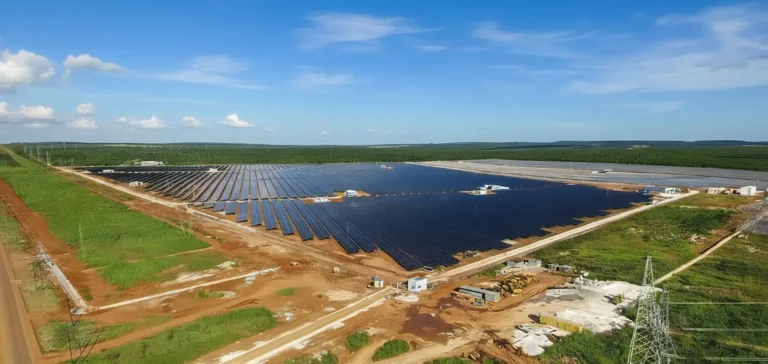AXIAN Energy, a subsidiary of the AXIAN Group specialising in renewable energy infrastructure, has announced the acquisition of 85.6% of the Bangweulu Solar PV plant, located in Kafue District, Zambia. The transaction marks the entry of the Madagascar-based company into the Zambian energy market, supported by a government policy targeting 1,000 MW of solar capacity by the end of next year.
A strategic asset for local production
The plant spans 52 hectares and has an installed capacity of 54.3 megawatt-peak (MWp). It generates an average of 87 gigawatt-hours (GWh) annually, equivalent to the yearly consumption of over 82,000 households. The electricity produced is sold to the state-owned Zambia Electricity Supply Corporation Limited (ZESCO) under a 25-year power purchase agreement signed under the Scaling Solar Zambia programme, coordinated by the International Finance Corporation (IFC).
Financial structure and project background
Before being acquired by AXIAN Energy, the plant was owned by a consortium led by French power producer Neoen (55%), US-based First Solar (25%), and the Industrial Development Corporation of Zambia (20%). The project was initially financed at $59mn, including a $28mn loan from the IFC, with $14mn provided through the Canada Climate Change Program, and a parallel $14mn loan granted by the Overseas Private Investment Corporation (OPIC).
Continental positioning and regional growth
AXIAN Energy thus strengthens its regional deployment strategy, already active in West, East and Southern Africa. In Côte d’Ivoire, the company is building the Kong Solaire plant (50 MW) and is leading the NEA Kolda project in Senegal, planned at 60 MW with 72 megawatt-hours (MWh) of storage. These projects are supported by institutions such as the Netherlands Development Finance Company (FMO), Deutsche Investitions- und Entwicklungsgesellschaft (DEG), and the Emerging Africa Infrastructure Fund (EAIF).
Local prospects and regional integration
By integrating Bangweulu Solar PV into its portfolio, AXIAN Energy targets a rapidly transforming Zambian market. The Zambian government has initiated several reforms to attract investors and diversify its energy mix, still heavily reliant on hydropower. The growing presence of private operators in solar is seen as a lever to meet rising demand, particularly in peri-urban and industrial zones.






















